
This site uses cookies, by continuing to use this site you accept the terms of our privacy policy
Feed 2.0 Loading...
New Tabloid Hits The Streets At Dounreay
17th March 2007
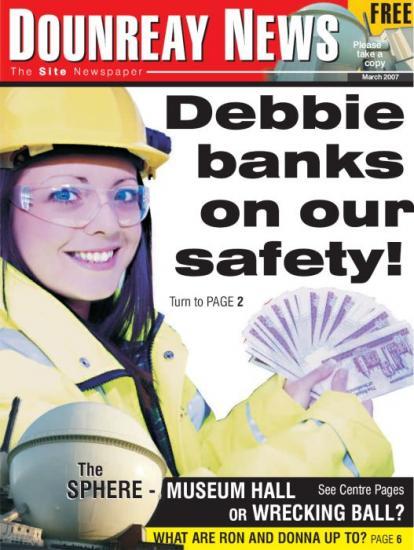
A free newspaper has hit the streets of Caithness.
But the proprietors of the local John O'Groat Journal and Caithness Courier don't need to worry.
For the new tabloid newspaper is aimed exclusively at workers decommissioning the fast reactor experiment at Dounreay.
The eight-page, full-colour Dounreay News is being issued free every month with a print run of 2000 copies.
The tabloid style of the paper is designed to reflect the fundamental change in the nature of work at the site.
"We've gone from a research and development site to a clean-up and demolition site, so we wanted to reflect that in how we improved the communications at the site," explained editor Sue Thompson of the site's communications department.
The tabloid includes a regular "page three pin-up" - Danny Macdonald, a radiological protection supervisor with shaft isolation contractor Ritchies, is profiled in the first edition this month.
Each edition will include a guest columnist, with local MP John Thurso the first to pen a piece for the "off the record" series.
In an upbeat message to staff about securing jobs to replace those lost through decommissioning, the Lib Dem politician says the far north has the people and environment who can prove the "doom merchants" wrong about the future of the area.
Other features in the first edition include a centre-page spread about the future of the Dounreay Fast Reactor headlined "The Dounreay sphere - museum hall or wrecking ball" and reflecting the views of workers both for and against keeping it intact for future generations.
AMEC business guru Ron Peddie, who is leading the site's efforts to support the social and economic regeneration, is also featured, as are the views of a cross-section of workers about changing employers in the next year to a new site licence company that will be put out for competition by the Nuclear Decommissioning Authority.
"Dounreay News is very much about giving a voice to the views and aspirations of real workers about the real issues that affect them," added Sue.
"Dounreay today is all about construction, demolition and industrial clean-up, and doing it safely. Dounreay News can become an important part of the communications about that."
The paper is designed by site graphics firm JCL and printed by Highland Printers.
The newspaper is also available online in Pdf.
See:
http://www.ukaea.org.uk/news/publications_dounreay_news.html
Related Businesses
Related Articles
10/1/2025
Fusion-grade Steel Produced At Scale In UK-first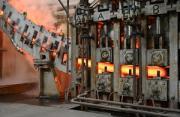
Researchers achieve 10x production cost savings for reduced activation steel. A United Kingdom Atomic Energy Authority (UKAEA) working group has successfully demonstrated the industrial scale production of fusion-grade steel.
22/12/2024
UKAEA To Lead The Creation Of A Robotics And AI Cluster
UKAEA will lead the creation of a new £4.9m nuclear robotics and artificial intelligence cluster across Cumbria and Oxfordshire. The robotics and AI cluster was announced by UK Research and Innovation (UKRI) as one of seven new projects to kickstart economic growth and address regional needs: www.ukri.org The robotics and AI cluster will link Cumbria and Oxfordshire to accelerate the decommissioning of the UK's legacy nuclear fission facilities and keep people out of hazardous environments.
5/12/2024
Diamonds Are Forever? World-first Carbon-14 Diamond Battery Made In Uk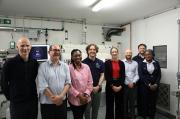
The world's first carbon-14 diamond has been produced with the potential to provide power for thousands of years. Scientists and engineers from the UK Atomic Energy Authority (UKAEA) and the University of Bristol have successfully created the world's first carbon-14 diamond battery.
4/11/2024
UKAEA Monthly Newsletter Latest Edition
Find out what has been happening at UKAEA in our monthly newsletter. Read about our recent activities and upcoming events.
1/10/2024
UKAEA Newsletter - Edition 11 Published Today
Find out what has been happening at UKAEA in our monthly newsletter. Read about our recent activities and upcoming events.
23/5/2024
Corwm Visits Dounreay Nuclear Site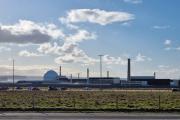
Members were given an overview of the scale of the problem and challenges faced in the decommissioning of the site. In the last week of March 2024, several members of CoRWM led by the Chair, Sir Nigel Thrift, made the long journey up to the North of Scotland to visit the Dounreay nuclear site, now managed by Nuclear Restoration Services.
5/3/2021
Design Contract Awarded For Dounreay Shaft And Silo Work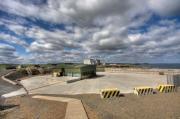
Dounreay has awarded an important waste clean-up contract to Jacobs as the site plans for the future of its deepest historic radioactive waste store. Jacobs and its supporting partners have been awarded a 6-year contract to provide a design management team to produce a fully integrated design for the shaft and silo project.
6/11/2013
Radiation dose to public from Dounreay reduces
Dounreay�s radioactive impact on the environment continues to fall, according to a report. The annual survey report �Radioactivity in Food and the Environment� (RIFE 2012) has recently been published and it can be read here - http://www.sepa.org.uk/radioactive_substances/publications/rife_reports.aspx The report uses data obtained from samples of air, fresh water, grass, soil, and locally sourced meat, fish, milk and vegetables during 2012.
6/4/2012
57,000 Tonnes Of Hazardous Materials Finally Dealt With At Dounreay
Dounreay today completed the destruction of one of the most hazardous legacies of Britain's earliest atomic research. A purpose-built chemical plant processed the last of 57,000 litres of liquid metal lifted from the primary cooling circuit of the experimental fast breeder reactor.24/3/2011



